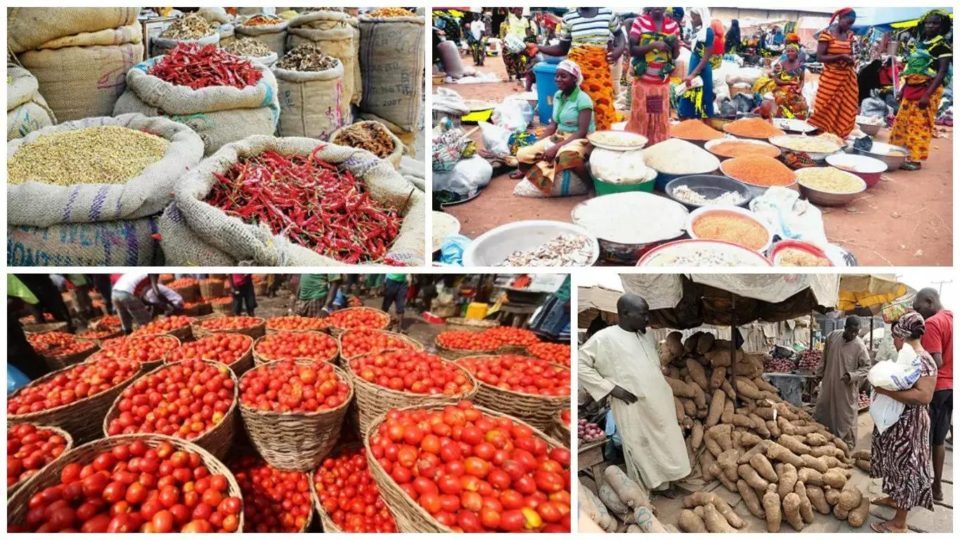The continuous closure of Nigeria’s land borders may be doing more harm than good at the moment, as a report from FSDH Merchant Bank Limited shows that some textile firms in one of Nigeria’s commercial city, Kano, have shut down operation.
According to the FSDH macroeconomic report for October, some textile firms in Kano have shut down operations with a large pile of inventories due to the inability to export to other African countries via the borders.
FSDH stated that for firms that rely on imported inputs via the land borders, the closure had resulted in higher production costs and this would have further implication on Nigeria’s outputs in the fourth quarter of 2019.

Border closure pressuring prices
Analysts at FSDH believe that the border closure comes with high inflationary pressure and this does not look good for the economy. Basically, FSDH stated that although almost 99% of Nigeria’s formal trade is done via air with land borders largely dominated by informal trade, the border closure is expected to have implications on food prices and core inflation in the economy.
[READ MORE: Poultry industry saves N50 billion due to border closure]
The report reads: “While Inflation has moderated in the first nine months of 2019, inflationary pressures are imminent in the remaining part of the year. These pressures would stem from higher government spending, potential tax increase and the recent closure of the land borders.
“The border closure creates an opportunity for local producers of commodities such as rice, vegetable oil, palm oil and other agricultural produce to increase production and meet local demand. Local rice producers will take advantage to increase production.
“However, in the short term, and especially given the supply-demand gap of these commodities as well as the time required to cover this gap, shortages are expected, and as a result, higher prices.
“For rice, in particular, the USDA estimates local demand at 7.3 million metric tonnes (MT) while local production stands at 4.8 million MT per annum. Although production has significantly increased in the last 4 years, the supply-demand gap still remains huge and will be exacerbated by the recent border closure.
“Already, the price of 50kg bag of rice has increased significantly from N14,000 before the border closure to about N25,000 in October. Even local producers have taken advantage of the situation to increase price. Given that rice is a popular staple food across Nigeria, this is expected to trigger food inflation in the coming months.”
Border closure and investment outlook
According to FSDH, the closure of the land borders is expected to have a mixed impact on investments and trade. Analysts at the firm believe the introduction of such policy without embarking on measures to improve local capacities would only result in higher prices and firms’ redundancy.
“Already, several local firms involved in exports via land borders have shut production plants, with piled-up inventory. This is expected to negatively affect investments.
“In addition, closure of land border without commensurate and prior investment in ports infrastructure and implementation of port reforms would lead to increased pressure on the existing ports, and result in reduced trade volumes.”
On the positive side, real investors will take advantage of the border closure and make investments in the production of strategic products such as rice and poultry products.

The Nigerian economy maintains a weak outlook
Providing forecast for the Nigerian economy, FSDH stated that the Nigerian economic outlook remains weak as pressures build on the country’s reserves, prices and output.
“Nigerian economy is expected to grow at around 2% in 2019. This will be lower than the 2019 target of government’s ERGP of 4.5%. Growth will remain below population growth of 3.1%, with implications on real income per capita.
Growth will continue to be driven by the Services sector- Telecoms and Transport will play a major role in driving growth.
For output, local producers could take advantage of the border closure; however, there are still pertinent supply-side challenges of infrastructure, logistics and quality of produce.”
Concluding the report, FSDH highlighted major risks the Nigerian economy would face in the medium run, and these include slow pace of implementation of fiscal reforms and uncoordinated policies, a possible decline in crude oil price, interest rate hike in developed countries, insecurity and Shortage of skilled labour.




















